What It Does
Glean is a “Work AI” platform that combines enterprise search with an AI assistant and automation agents. It connects to your company’s apps and databases to index all your internal knowledge (documents, messages, wikis, etc.) in one place, while enforcing permissions so employees only see what they should. Employees can ask natural-language questions and Glean’s assistant uses LLMs to retrieve answers, draft content, or orchestrate workflows based on your internal knowledge graph.
Why Ops Leaders Should Care
How much time do you and your team spend hunting through old presentations, sifting through spreadsheets, or pinging random colleagues to gather information? Glean makes data from HR, finance, sales, IT and other departments instantly searchable in a single interface. By scaling context across the organization and reducing busywork, Glean can free ops leaders to focus on higher-value projects instead of chasing information.
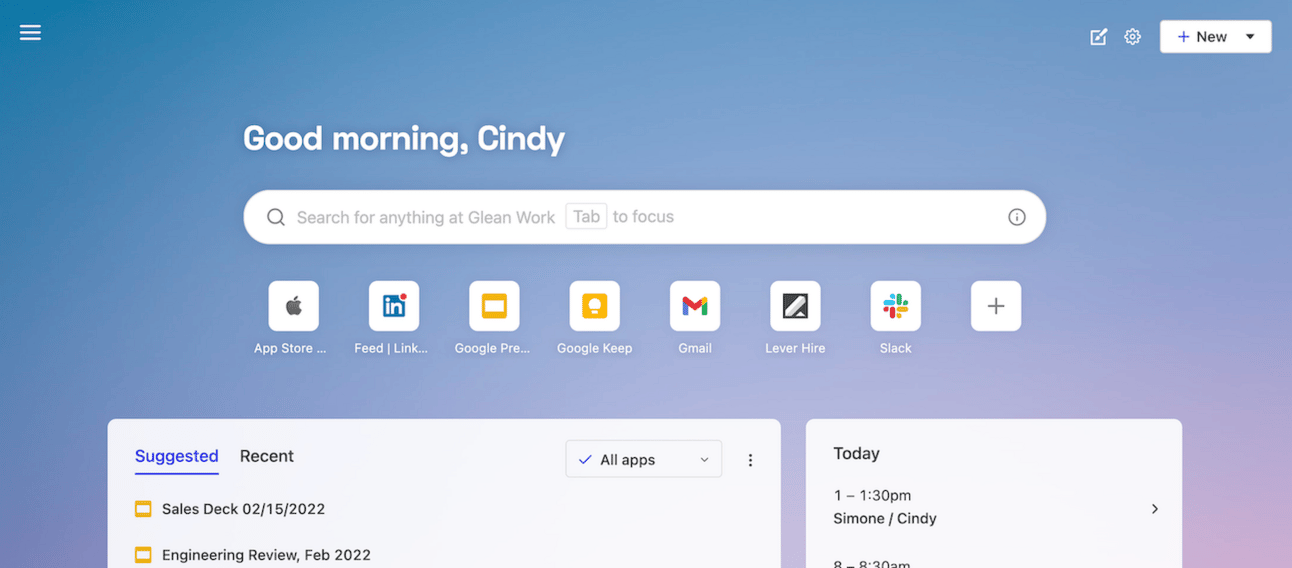
A picture of Glean’s dashboard
Key Features (Pros & Cons)
Pros:
- Unified search across 100+ workplace apps
- An AI chat assistant that can surface answers or draft documents based on your company’s knowledge
- AI agents that can analyze data and automate common processes, accompanied by the business context to make those automations smart
- Strong attention to security and permissions
- Robust fundraising history - a $7.2 billion valuation with $610 million raised since early 2024 (including a fresh $150 million this month in their Series F)
Cons
- Onboarding takes real time and effort - connecting and indexing all the data sources needed to make it useful doesn’t happen instantly
- Giving any tool such extensive access to your internal data presents security and compliance risks - while Glean places an emphasis on security, it’s a young, fast-growing company
- Lack of transparent pricing (and the actual pricing is not cheap - think $30-50 per user per month)
- Questions about sustainability of data accessibility: Slack - one of many companies’ key data repositories - severely restricted access to its system for many outside service providers, a trend likely to continue as b2b tools try to protect their competitive advantage by locking down their data
An Operator’s Perspective
A senior operator at a growth-stage tech company who asked to remain anonymous gave the following report on their company’s usage of Glean:
What they were looking for: “An enterprise solution that would work across multiple tools…one of our largest issues was employees finding data across the business.”
Who “owns” the system? “Our IT department, which sits under finance and operations.”
What do you like about it? “The search functionality is strong, it can read across multiple tools and provide summaries…one of the agents built [us] a weekly summary report which is used by teams to highlight what has and hasn’t moved over the week…[the agents] are pretty simple to use so we’re starting to see adoption across the business.”
ROI so far: “We’ve seen reduction in manual processes and search times.”
Critical feedback:
- “It runs behind live ChatGPT by about 6 months, so the responses you receive are often better in ChatGPT vs Glean.”
- “It’s only as good as the data in your company…if you’re not keeping documentation up to date” then it doesn’t work as well.
- “The recent announcement from Salesforce around cutting off API access is an issue. Slack is our main communication tool and not being able to access this data ultimately removes the usefulness of the tool.”
Overall
Public commenters outline the common trade-offs in build vs. buy in this use case - Glean’s UI is great and it generally works well after the initial setup, but it’s expensive and less flexible than building it yourself. A 4.8/5 on G2 and general lack of negative sentiment to be found online point to the fact that it’s solving a real set of problems for companies. However, it’s only as useful as the quality of its inputs and headwinds on access to outside tools like Slack could prove to be a real problem.
Other Options
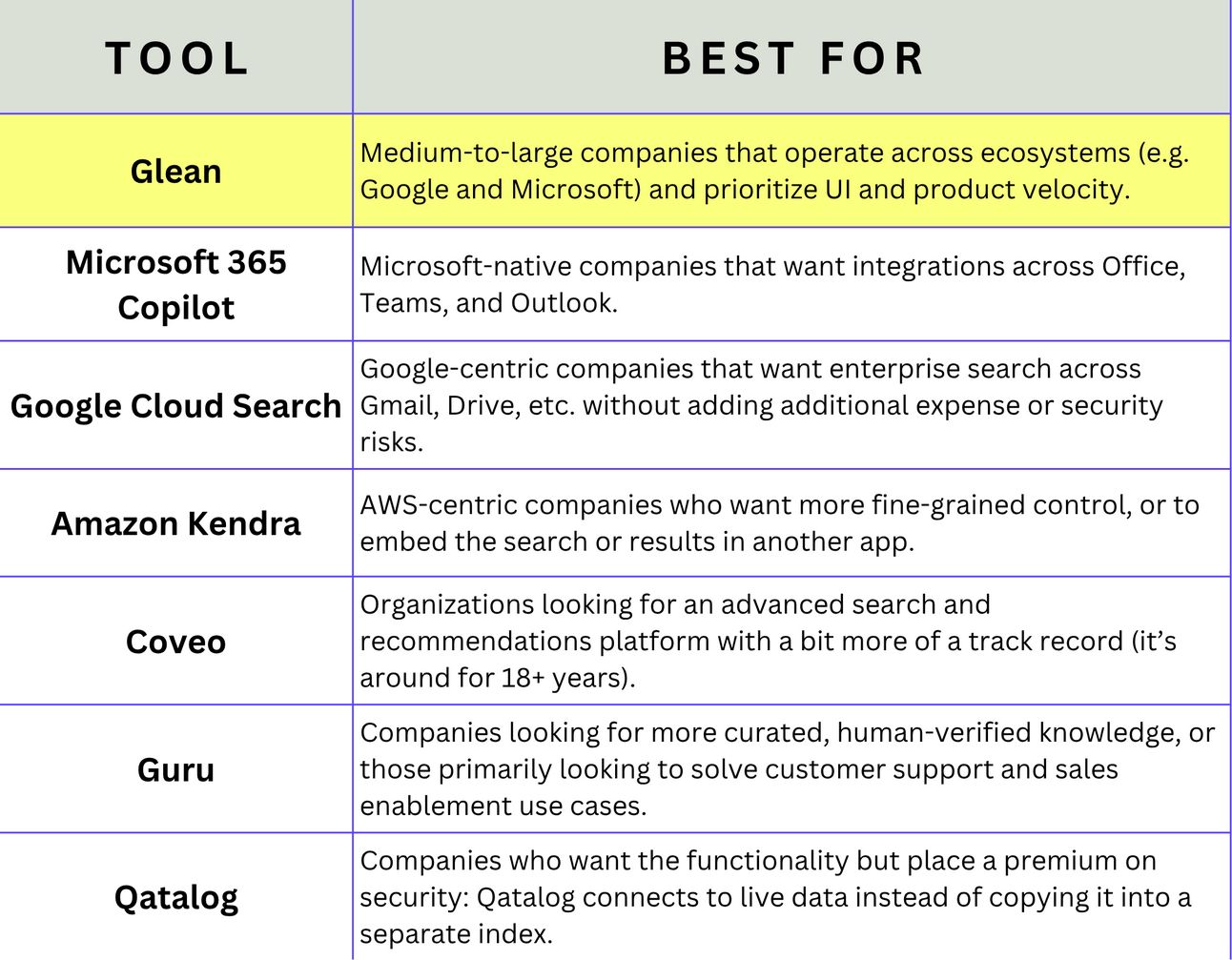
Bottom Line
Today: if you’ve got a pretty standard tech stack, a complex or fast-growing org, and at least moderately-good data hygiene, Glean (or a tool like it) can help make your team more efficient.
Tomorrow: as assistants and agents become more powerful, a system like Glean could be table stakes for any company that wants to deploy an agentic workforce. Connections to outside tools are quickly becoming a battlefield, as companies pursue different competitive strategies, so adjusting to shifting permissions is likely to become the norm. Meanwhile, the AI giants with built-in access to your data (from Google and Microsoft to OpenAI) aren’t slowing down…








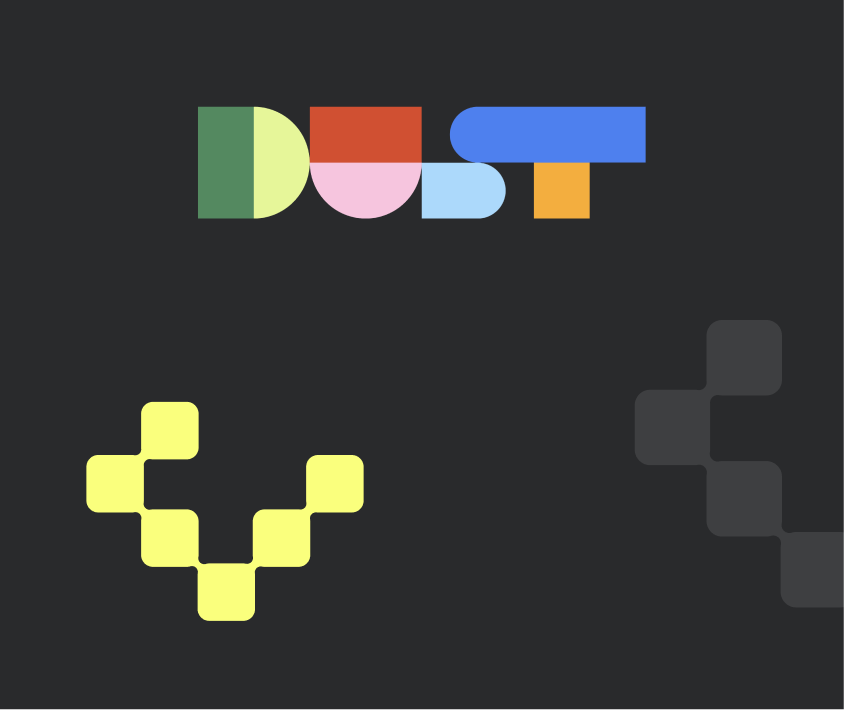
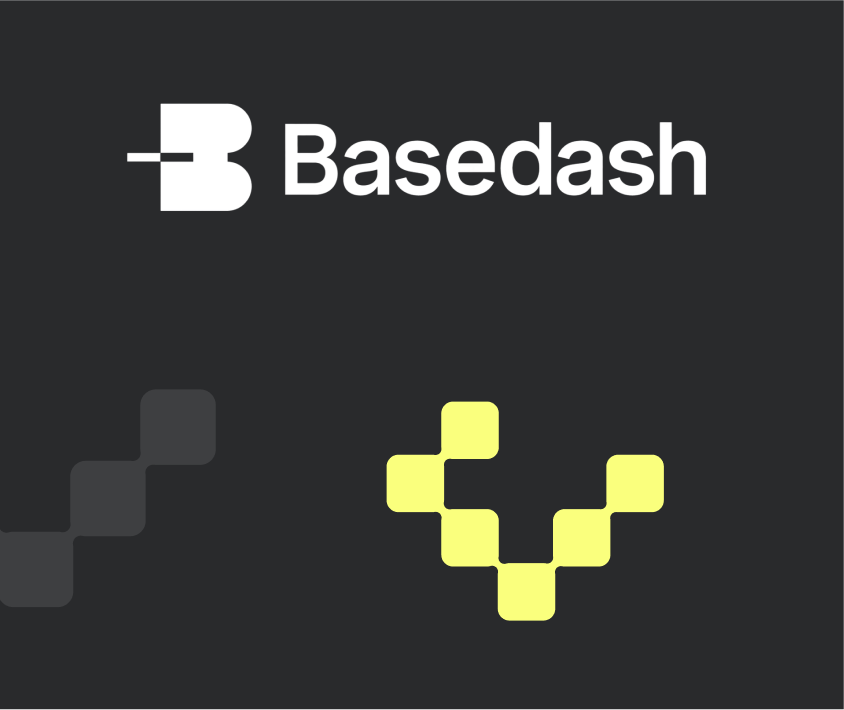
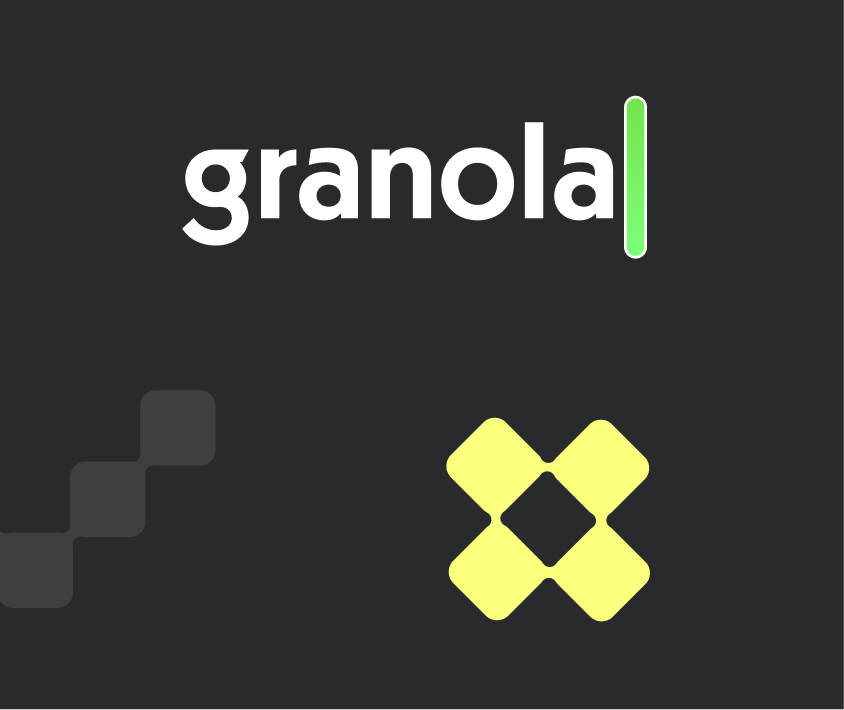
.png)
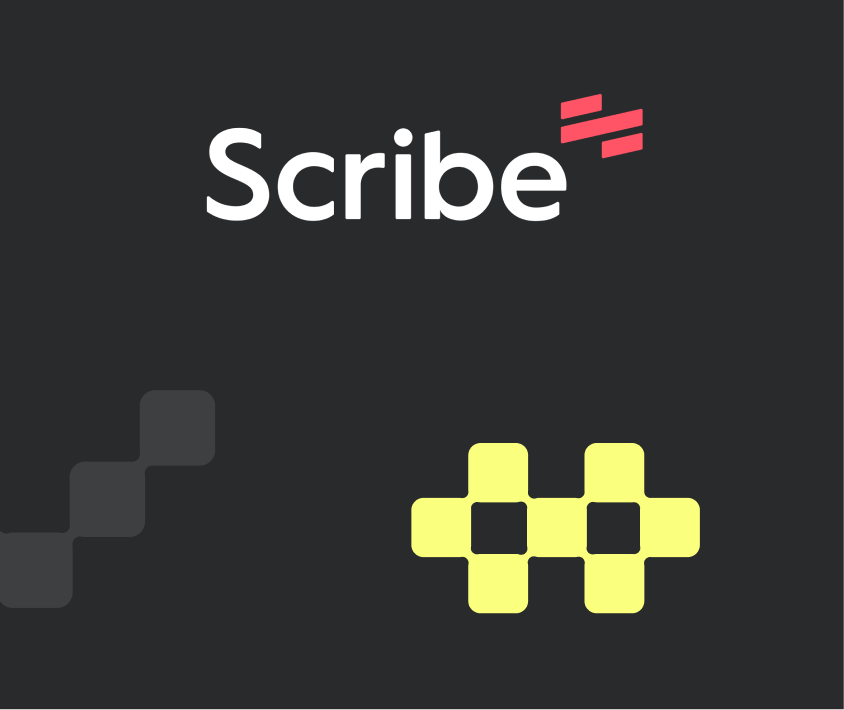





.svg)